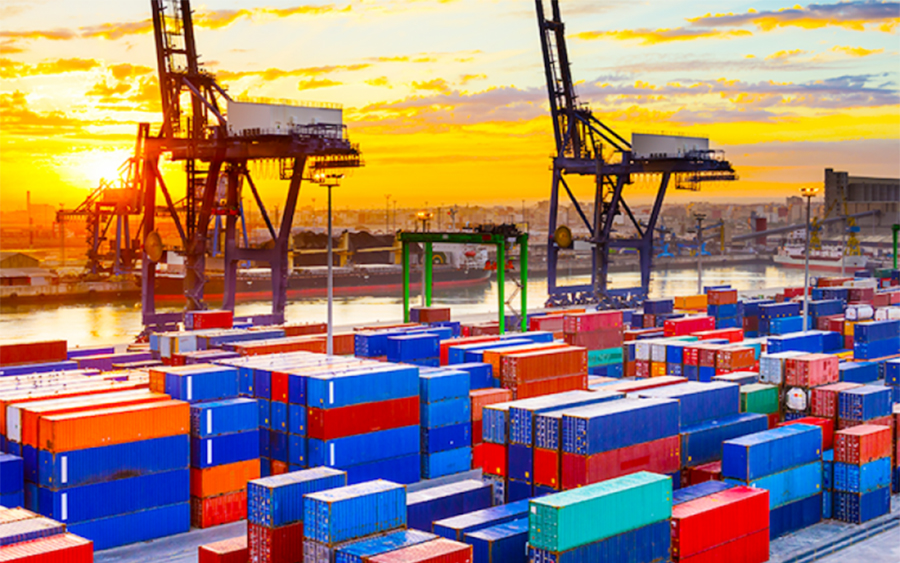The Federal Government of Nigeria announced on Tuesday that it will finally become a signatory to the African Continental Free Trade Agreement (AfCFTA) after one year of delay.
This development comes after the President Buhari-led Government initially expressed an unwillingness to sign the agreement, given some factors which major stakeholders like Aliko Dangote, Abdul Samad, and the Manufacturers Association of Nigeria worried could backfire against the country.
The President is now set to sign the deal on July 7, 2019, when African leaders meet in Niemey, Niger, for an Extraordinary Summit of the African Union.
Nigeria will sign the #AfCFTA Agreement at the upcoming Extraordinary Summit of the African Union in Niamey, Niger.
Recall that the Pres. Cttee on the Impact & Readiness Assessment of the Agreement Establishing the AfCFTA submitted its Report to Pres @MBuhari Thur June 27, 2019.
— Presidency Nigeria (@NGRPresident) July 2, 2019
Officially confirmed! #Nigeria to sign the #AfCFTA Agreement during Niger Extra-Ordinary Summit in few days. Good and important development. Two more to go and an All Africa Market will start shaping up. pic.twitter.com/gWw116JHT7
— Amb. Albert Muchanga (@AmbMuchanga) July 2, 2019
[READ ALSO: Dangote raises concerns over FG’s signing of AfCFTA]
Why the change of mind? President Muhammadu Buhari set up a panel in March to appraise the situation. The panel, which was led by Desmond Guobadia, reportedly gave a go-ahead for Nigeria to sign it, stating that, “Our reports show that, on balance, Nigeria should consider joining the AfCFTA”.
The Government also disclosed that after extensive domestic consultations, the decision was made to join the 52 out of 55 African countries backing the policy.

Why Nigeria’s participation is vital: Nigeria is the largest market in Africa and the most populous country in Africa with an estimated population of about 200 million citizens. Nigeria’s economy is a major contributor to Africa’s gross domestic product and economic growth with Lagos being one of the top ten largest economies in Africa.
Therefore, Nigeria presents viable market opportunities, a sizable customer base, and high purchasing power compared to other African countries that can boost exportation revenue for members of the AfCFTA.
[READ ALSO: BUA Group’s Chairman reveals the risk of Nigeria signing AfCFTA]
The benefit of the AfCFTA: The single market agenda was initiated to reduce barriers to trade through the removal of import duties and non-tariff barriers. This is expected to “stimulate intra-African trade by up to $35 billion per year, creating a 52 percent increase in trade by 2022; and a vital $10 billion decrease in imports from outside Africa.” African Development Bank (AfDB).
Is Nigeria making a grievous mistake? Although the AfCFTA was created to promote a single market and free movement of goods among African countries, the deal might not augur well for Nigeria after all. Nigeria has porous borders, a situation that makes it easy for goods to be moved into the country without adequate checks. The AfCFTA could, therefore, make it easier for more goods to be dumped into the country going forward.

- Agreed, the AfCFTA was created to drive Made-in-Africa goods. However, there have been fears that some countries might collude with Western and Asian countries to smuggle in foreign goods and disguise as African made, thereby eroding the objective of AfCFTA. This is one of the factors that delayed Nigeria’s commitment to the single market agenda, and the panel warned of it, “The risk is that it will provide incentive for traders to disguise goods imported from outside the continent as made-in-Africa goods” the report says.
- This move could also affect the Buy-Naija-To-Grow-Naira campaign in Nigeria. The country does not currently produce enough products and Nigerians are not totally sold on Made-in-Nigeria goods just yet. This is why opening the border for goods made in other parts of the continent could be a setback for local manufacturers.
[READ ALSO: Again, MAN warns FG against signing of AfCFTA]
- Also, African countries are known for not always keeping to trade agreement like AfCFTA. In an interview in April, the Chairman of BUA Group, Abdulsamad Rabiu, had stated that the AfCFTA could end up like previous treaties that were largely futile trade-relationship. Rabiu stated that treaties like Ecowas Trade Labourisation Scheme (ETLS), has not benefited some businesses in Nigeria.
- This is because other countries such as Benin Republic and Burkina Faso who are members of ETLS, do not allow the importation of some goods from Nigeria into their countries. According to Rabiu, if these member nations can restrict trade relations between Nigeria and their country, then a bigger treaty like the AfCFTA would hold no weight. Although Rabiu believes AfCFTA has its opportunities.
Dangote and Manufacturers Association of Nigeria (MAN) have all raised concern regarding the AfCFTA, because while Nigeria is a viable business option for growth for the African continent, Nigeria and other African countries could be an hostile business environment for Nigerian goods to thrive.















